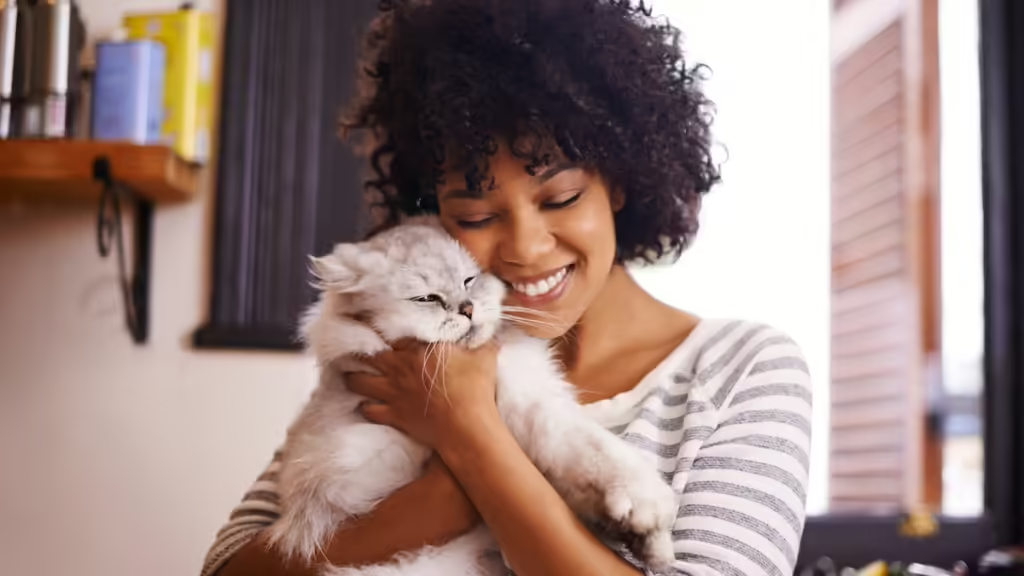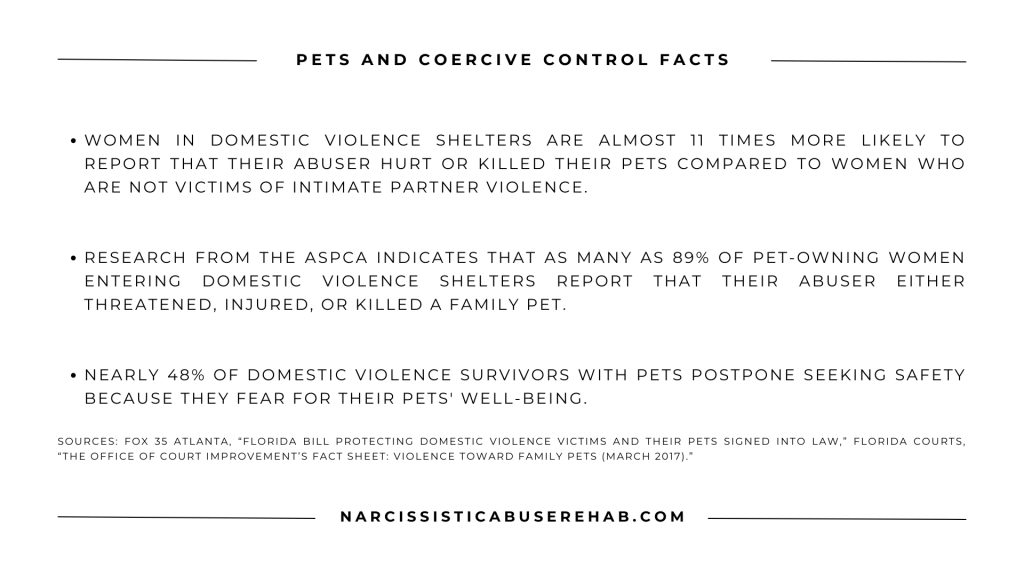On July 1, 2020, domestic violence survivors in Florida received expanded legal protections that include their pets. Governor Ron DeSantis signed the bipartisan Senate Bill 1082 into law in June, 2020 allowing courts to include their pets in restraining orders against abusers.1 Perpetrators of coercive control may target pets as a means of inducing fear and submission in the victim, putting their lives at risk. Florida’s groundbreaking measure recognizes the bond between survivors and their pets as well as the essential role pets play in the emotional well-being of people escaping abusive situations.
What is SB 1082 and How Does It Protect Pets?

SB 1082 empowers courts to include pets in domestic violence injunctions in the following ways:
- Court Evaluation Factors – The court considers various factors, including whether the abuser has previously harmed or threatened to harm pets, when deciding whether to grant these protections. This helps ensure comprehensive safety measures for survivors and their pets.
- Temporary Protection for Pets – Survivors can request temporary exclusive care, possession, or control of their pets. This means that pets can be legally protected from abusers in restraining orders, preventing the abuser from taking or harming the pet.
- No Contact Orders for Pets – Courts can order that the abuser have no contact with the pet. This prevents the abuser from taking, transferring, harming, or disposing of the animal. It provides safety for pets while the survivor seeks further legal relief.
- Exceptions:- There are some exemptions to the law. SB 1082 does not apply to animals used for bona fide agricultural purposes or to service animals if the respondent is the handler.
- Longer-Term Protection – After a full hearing, survivors can still petition the court to continue these protections for their pets as part of longer-term injunctions. This provides extended relief for both survivors and their pets.
The legislation, spearheaded by Florida Senator Ben Albritton (R-Lakeland) and Representatives Sam Killebrew (R-Winter Haven) and David Silvers (D-West Palm Beach), quickly garnered strong bipartisan support.
SB 1082 has been lauded by animal welfare organizations, including the American Society for the Prevention of Cruelty to Animals (ASPCA), for taking a critical step in addressing this hidden form of coercive control.
How Perpetrators of Coercive Control Use Pets

Pets have traditionally been overlooked in legal protections, even though their safety can significantly impact a survivor’s decision to leave a dangerous situation. Animal cruelty is a clear and common sign of coercive control. The ASPCA reports that the safety of pets is a major factor in why 1 in 4 domestic violence survivors remain in abusive relationships.2
Threats to harm or kill family pets is one of the common tactics used by perpetrators of abusive power and control to frighten and manipulate the victim.3 One study found that women in domestic violence shelters are almost 11 times more likely to report that the abuser had threatened, hurt, or killed their pet than women who had not experienced coercive control. Moreover, 48% percent of pet-owning victim-survivors report that they remain in abusive environments our of concern for their pets’ safety.4

Praise For SB 1082 From Animal Welfare Organization

ASPCA’s senior director of state legislation, Jennifer Hobgood, highlighted that the Florida Domestic Violence Pet Protection Law now offers a clearer path to safety for both people and pets during this challenging time.
SB 1082 aligns Florida with 39 other states that have passed similar protections, marking an important milestone in broader efforts to safeguard vulnerable pets and their pets.5 Animal protection legislation also exists in Washington D.C., and Puerto Rico. The ASPCA praised Florida for taking action, emphasizing the necessity of such protections as domestic violence rates increase across the country.
Advocates on the ground, like Amy Carotenuto of the Flagler County Humane Society, celebrated this legal victory. Carotenuto expressed hope that survivors can now seek help without fearing for their pets’ safety. She sees this law as a powerful tool for breaking the cycle of abuse, encouraging survivors to step forward knowing their entire family, including their pets, will be protected.
Summary

Including pets in protective orders could be life-changing for many. Pets are not just animals; they provide emotional comfort and stability to their guardians. In entrapment-based relationships, abusers often use pets as tools for control. 48% of pet-owning survivors in Florida domestic violence shelters report that their abusers either threatened or harmed their pets to manipulate them. SB 1082 acknowledges the complex dynamics of abusive power and control, particularly the exploitation of beloved animals to maintain dominance.
This law demonstrates a growing recognition that safety and protection from violence must be inclusive. By extending protection to pets, the law sends a powerful message: no survivor should have to choose between their safety and the safety of their beloved animals. Women, children, and pets all deserve to live free from violence, and this bill ensures that survivors no longer have to face these impossible choices alone.
Editors note: To reflect the current legal landscape, this article was revised on August 23, 2024 to note that 40 states have expanded their domestic violence protection orders to include protections for pets.
Resources
- Florida Senate. 2020 CS for SB 1082 An Act Relating to Domestic Violence Injunctions
By the Committee on Agriculture; and Senator Ben Albritton. Tallahassee, Florida: Florida Legislature, 2020. ↩︎ - Bershadker, Matt, and Rep. Katherine Clark. “Protecting All the Victims of Domestic Violence.” ASPCA, March 5, 2015. ↩︎
- Ascione, F. R., Weber, C. V., Thompson, T. M., Heath, J., Maruyama, M., & Hayashi, K. (2007). Battered pets and domestic violence animal abuse reported by women experiencing intimate violence and by nonabused women. Violence Against Women, 13(4), 354-373, at 361. ↩︎
- Carlisle-Frank, P., Frank, J. M., & Nielsen, L. (2004). Selective battering of the family pet. Anthrozoös, 17, 26-42. ↩︎
- Wisch, Rebecca F. Domestic Violence and Pets: List of States that Include Pets in Protection Orders. Animal Legal & Historical Center, Michigan State University College of Law, 2024. ↩︎






